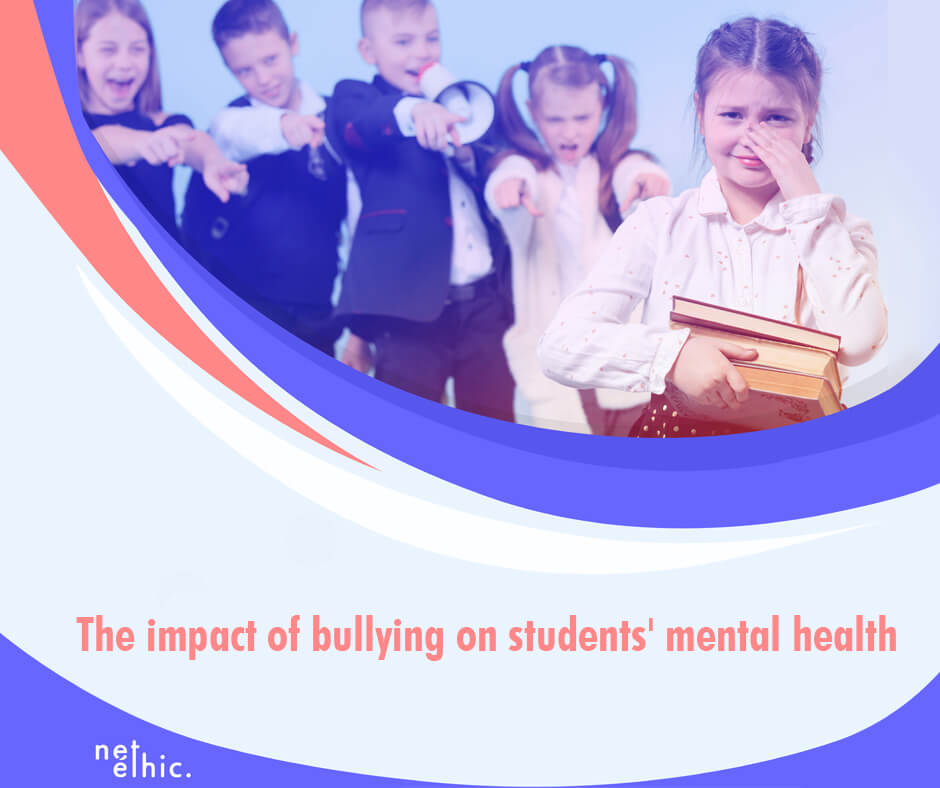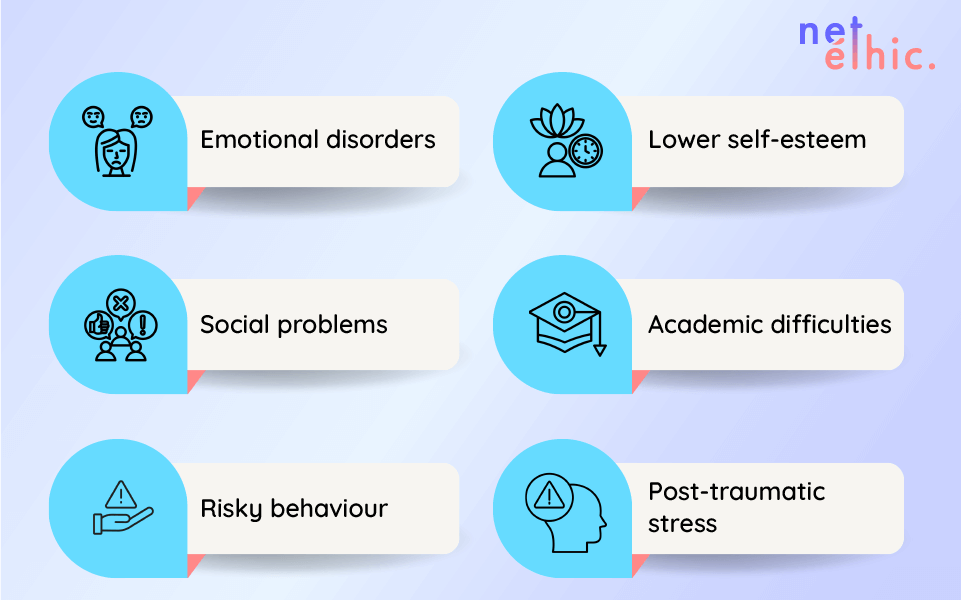Netéthic, a software solution targeting both traditional and cyber bullying
The impact of bullying on students’ mental health
Students’ mental health is a determining factor in their overall well-being and academic success. Psychological issues can have a profound impact on the learning capacity, self-esteem and personal development of young people.
The main objective of this article is to analyze in depth the psychological impact of school bullying, offering a scientific perspective on the consequences of this phenomenon on the mental health of students.

Alarming figures on bullying:
School bullying is widespread, encompassing both physical and psychological forms, including gender-based violence, sexuality, physics, origins, and many other criteria, and combining harassment and cyberbullying. Although schools are supposed to represent safe and caring environments for learners and teachers, the available data reveal that this reality is not always respected.
The negative impact on mental health:
Bullying has a significant impact on students’ mental health, resulting in a series of harmful consequences that can persist in the long term. Here is an overview of the main aspects of this impact:

The consequences of bullying on students’ mental health
- Emotional disorders: School bullying can cause emotional disorders such as anxiety, depression and chronic stress in victimized students. Feelings of isolation and hopelessness can also emerge, compromising young people’s emotional well-being.
- Lowered self-esteem: Repeated aggression can lead to a significant drop in the self-esteem of harassed students. Negative comments, insults and hostile behavior by aggressors can undermine victims’ self-confidence, making them doubt their skills and self-worth.
- Social problems: School bullying often disrupts students’ social relationships. Victims may withdraw socially, find it difficult to connect with peers and have trouble trusting others. These social problems may persist beyond the school context.
- Academic difficulties: Harassed students may experience academic difficulties due to the stress and emotional distress associated with bullying. Focus-related problems, constant fear and mental exhaustion can compromise their academic performance and ability to focus on their studies.
- Risk behaviours: Some students who are victims of bullying may develop risk behaviours, such as self-harm, substance abuse or even suicidal thoughts and tendencies. Bullying can create a sense of hopelessness in victims, driving them to adopt dangerous behaviors to escape their suffering.
- Long-term trauma: Bullying can leave lasting psychological scars. Traumatic experiences can influence the mental health of victims into adulthood, contributing to disorders such as post-traumatic stress disorder (PTSD) and negatively affecting their quality of life.
Prevention: Software solution - Netethic
From a proactive perspective, prevention of bullying is essential. A software solution like Netethic, based on sophisticated algorithms, can help to detect and prevent online and offline bullying at an early stage. Its intelligent use can create a safer educational environment, safeguarding students’ mental health.
In conclusion, school bullying is not simply an unpleasant experience, but a serious societal problem that profoundly affects the mental health and more generally the well-being of students. Awareness, prevention and support for victims are essential to mitigate these devastating effects and foster a safe and healthy school environment. To find out more about solutions for preventing bullying in schools, we encourage readers to take advantage of Netethic, a sophisticated software program that helps create a safer educational environment.












































